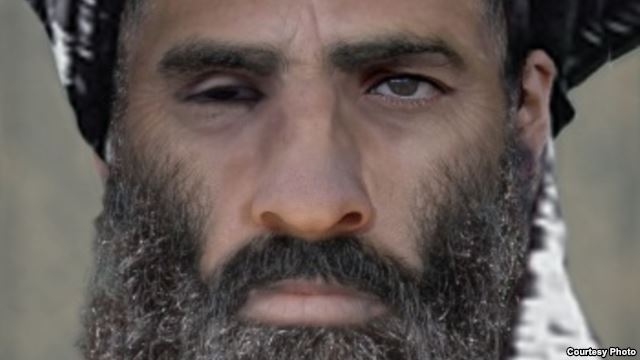-
Tips for becoming a good boxer - November 6, 2020
-
7 expert tips for making your hens night a memorable one - November 6, 2020
-
5 reasons to host your Christmas party on a cruise boat - November 6, 2020
-
What to do when you’re charged with a crime - November 6, 2020
-
Should you get one or multiple dogs? Here’s all you need to know - November 3, 2020
-
A Guide: How to Build Your Very Own Magic Mirror - February 14, 2019
-
Our Top Inspirational Baseball Stars - November 24, 2018
-
Five Tech Tools That Will Help You Turn Your Blog into a Business - November 24, 2018
-
How to Indulge on Vacation without Expanding Your Waist - November 9, 2018
-
5 Strategies for Businesses to Appeal to Today’s Increasingly Mobile-Crazed Customers - November 9, 2018
Taliban leader death reports ‘credible’
Taliban supremo Mullah Omar died two years ago in Pakistan, Afghanistan said on Wednesday, after unnamed government and militant sources reported the demise of the reclusive warrior-cleric.
Advertisement
The source did not give details of what evidence the Afghan government used to come to the decision, but said it had sufficient information to conclude that Omar died of hepatitis B about two years ago, and his death was kept secret to keep the group together.
Haseeb Sediqi, the spokesman for Afghanistan’s National Directorate of Security, told AFP that Omar died in a Karachi hospital “under mysterious circumstances”.
A senior Afghan Taliban commander based in neighboring Pakistan said Omar had died of natural causes, although he did not specify when.
And just two weeks ago, the Taliban released a statement attributed to Omar, saying he backed peace talks between the Taliban and the Afghan government.
The government of Afghanistan formally confirmed the death of Taliban supreme leader Mullah Mohammad Omar.
Haji Din Muhammad, who leads the Afghan government’s delegation to the nascent peace talks with the Taliban, told CBS News’ Ahmad that his team was to travel on Thursday to the Pakistani capital of Islamabad to resume the second round of talks.
The failure to prove that Mullah Omar was alive was a major factor behind the defection of several senior Taliban commanders to the so-called Islamic State group, according to the BBC’s former Kabul correspondent, David Loyn.
However, the spokesman of the NDS, the country’s intelligence agency, said that details about the Omar’s death will be released to the media when appropriate.
Earlier a Taliban splinter group, the Afghanistan Islamic Movement Fidai Mahaz, announced that the Taliban leader was killed by other leaders from the faction, namely, Mullah Akhtar Muhammad Mansoor and Gul Agha.
Mullah Omar’s death raises questions about the authority of Taliban representatives who attended the first round of peace talks in Pakistan on July 7, as well as earlier informal meetings in Qatar and Norway.
“The timing of such reports is questionable as talks being held for peace in Afghanistan”, said the official, who spoke on condition of anonymity under briefing rules. “Mullah Omar’s son identified the body of his father”.
Consider that the Taliban, for at least a few years now, hasn’t been a monolithic organization, with a clear command structure with Omar at its apex. “There needs to be a sense that the ones negotiating have enough influence within the Taliban to enforce whatever agreement is made”.
July 29 – Afghan officials say they are investigating claims Omar died.
“We confirm officially that he is dead”, he told The Associated Press. The Taliban denied previous claims.
Advertisement
Omar fought against Soviet forces in Afghanistan in the 1980s, where he sustained a serious injury to his right eye from shrapnel.





























